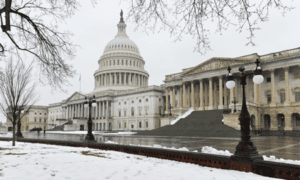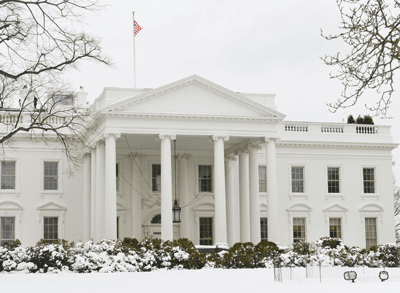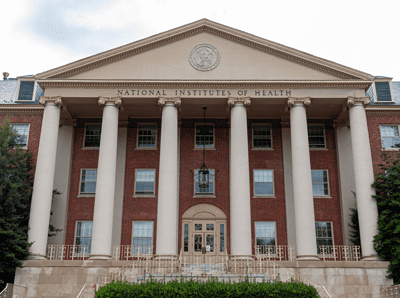
Just a few days after winning the election, the incoming Trump Administration began to identify key health policy proposals. Some of these priorities include addressing mental health issues and tackling the opioid overdose crisis, accelerating translational research, and improving rural health. The National Institutes of Health (NIH) remains under scrutiny, with ongoing discussions surrounding its involvement in infectious disease research and questions about the origin of the COVID-19 pandemic. These concerns could intensify under a second Trump Administration and a GOP-led Senate. Policy ideas that could resurface from the President-elect’s first term in office include limitations on the use of human fetal tissue in research, term limits for the directors of the NIH Institutes and Centers (ICs), elimination of several ICs, including the consolidation of the National Human Genome Research Institute (NHGRI), and limitations on reimbursement of facility and administrative (F&A) costs for research. Additional policy changes for NIH are likely to include the rollback of initiatives related to diversity, inclusion, or gender-based research. However, many of NIH’s long-standing research investments – from cancer to Alzheimer’s disease – continue to be bipartisan priorities and will continue as priorities into the next Administration.

With control of the House and the Senate, as well as the White House, Republicans will be positioned to advance their key legislative priorities, such as raising the debt ceiling, organizing annual spending bills for fiscal years (FY) 2026 and 2027, and completing remaining FY 2025 appropriations. The 119th Congress will also have a lengthy agenda on research, which may include revisiting or repealing President Biden’s initiatives and addressing bipartisan issues that the 118th Congress left unfinished. These range from a potential overhaul of the NIH to increasing investments in science and technology in order to maintain U.S. competitiveness in critical and emerging technologies. Historically speaking, bolstering NIH funding has been a key area of focus for both parties, though the level of support can fluctuate based on broader fiscal and policy priorities. A second term for President Trump could see continued emphasis on fiscal restraint and the potential for budget cuts in various sectors at the agency.

Thus far, the President-elect has quickly begun preparing for his second term by nominating several vital cabinet positions and laying the groundwork to implement policies promised during his campaign. Among his initial announcements of cabinet nominees, Trump indicated his choice of Robert F. Kennedy Jr. as the Secretary of the Department of Health and Human Services (HHS). Kennedy has expressed concerns about the NIH and has indicated that, if given the opportunity, he might consider replacing 600 NIH employees at the start of the Trump administration. With Republicans holding control of Congress and the Presidency, Kennedy could have significant latitude to advance his policy priorities as HHS Secretary. While he has been outspoken about his policy goals, Kennedy will still have to be confirmed by the Senate before assuming the role of Secretary. President-elect Trump has also announced Jay Bhattacharya, MD, PhD, as his pick to replace current NIH Director, Monica Bertagnolli, MD. Similar to Kennedy, Dr. Bhattacharya has been a figure of debate, largely due to his role in authoring the Great Barrington Declaration which challenges COVID-19 lockdowns and policies and endorses establishing herd immunity within less vulnerable populations to protect those at higher risk for severe complications and death.
Before a new Congress convenes in January, the 118th Congress has one major priority: funding the government past the expiration of the current continuing resolution (CR) on December 20. However, it is unlikely that all 12 spending bills can be finalized before the end of the calendar year, meaning that Congress will likely kick the can further down the road and extend current funding levels through March, when an agreement can be reached.
ASHG will continue to support funding for human genetics and genomics; ethical and responsible application of genetic knowledge; and diversity, equity, and inclusion in research cohorts and the scientific workforce. The Society also joins in coalition with the broader biomedical research advocacy community to support robust, predictable, and sustainable federal research funding to fuel scientific advances.
 In order to make your voice heard and urge Congress to finalize FY 2025 NIH appropriations as soon as possible, ASHG asks you to take action to contact your members of Congress here. To keep informed on ASHG’s advocacy efforts and Congressional updates, you can subscribe to ASHG’s monthly Advocate Update e-newsletter by taking our advocacy pledge here.
In order to make your voice heard and urge Congress to finalize FY 2025 NIH appropriations as soon as possible, ASHG asks you to take action to contact your members of Congress here. To keep informed on ASHG’s advocacy efforts and Congressional updates, you can subscribe to ASHG’s monthly Advocate Update e-newsletter by taking our advocacy pledge here.
